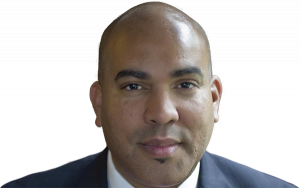Stewart: Charter Advocates Must Not Forget the First Commandment of Politics — It’s All About Your Base

The 74 is moderating a panel Wednesday at the 24th annual California Charter Schools Conference in Sacramento, about inaccurate narratives surrounding public charter schools and how the mainstream media covers, and occasionally distorts, the sector. (Livestream will start here at 1:45 p.m. EST.) Ahead of the event, all four participants have published new essays on this topic; read them all here. Get our latest media fact-checks straight to your inbox; sign up for The 74 newsletter.
In communities across the country, ground soldiers organized by unions and funded by “progressive” foundations canvass neighborhoods, slide undetected into important community meetings, and disrupt school board hearings when charter schools are on the agenda.
They come with powerfully simple slogans (“Charter schools choose their students”) and the weaponized rhetoric of class warfare. “Stop the privatizers!” they yell, and many of us who have no privatizing bone in our body cower.
We should straighten up. Failing to counter their avalanche of misleading messaging comes at a unacceptable price for school reformers. Our policy proposals fail at critical moments. Sometimes it means our best schools can’t expand and children lose opportunities to beat poverty.
People, we have a problem. We marvel at our power of regression analysis, we master nuance and the art of seeing the other side’s point, and, I fear, we’ve bought into a flawed communication strategy that isn’t working.
Here’s the formula we’re told we should use: (1) Avoid offending supporters of traditional public schools; (2) focus on persuading the voters we label “the movable middle” — those undecided civilians who could become supporters if engaged properly; and (3) enlist the people who are most likely to benefit from school choice to be their own spokespeople so that reform makes demands with an authentic voice.
On one, two, and three, I say no, perhaps, and yes. I also offer a different three things for us to keep in mind.
First, we have a base. We should act like it. Poll after poll after poll tells us parents want choice and support our reforms.
When you open a choice program or a promising charter school, you end up with too few spots for all the parents who want one. You get waiting lists. Yes, we fail to translate those masses into movement power, but it is power nonetheless.
There are 700,000 black children in charter schools, and at least an equal number of parents vested in our schools. Add to that the black teachers, principals, and advocates, and you have a body that dwarfs the membership of the NAACP.
Speaking of that group, remember the anti–charter school resolution it passed last year? That humbug caused too many reformers to ask what can be done to change the group’s mind. My flippant answer was give it $1 million like Coke and Pepsi did when those companies wanted the “historic civil rights organization” to drop its silly idea about a soda tax raising money to address childhood obesity and diabetes in the black community.
Money talks, and some groups are all ears.
We should be asking why “we” need to convince the NAACP of anything. Why isn’t our base, those people with the most to lose if charters die or the most to gain if charters prosper, making the demands? It they aren’t doing the bidding, we lose the auction.
Second, parent support for charter schools — though untapped — is based on practical concerns about the traditional public schools. Let’s not pretend it’s a secret within our base. It’s not, and we can’t be acting for the kids if we can’t be open-throated about the things that hurt them (even when we fear that doing so isn’t tactically appropriate).
Sadly, the main systems tasked with educating our kids are beyond troubled. The Los Angeles Unified School District has a $300 million child sex abuse problem. School boards across the entire state of Texas received counsel from a powerful law firm on how to deny legally mandated special education services to students who qualified for them. Nearly 100 school districts in California entered into settlements with the federal government to address civil rights abuses.
Stop me at any time and any place to continue this list of widespread district sins against marginalized communities.
It bewilders me how we let defenders of these systems come for us as if our alternative to their mess were some illicit product. We can’t fall for it — no matter how many PowerPoints tell us to walk softly and carry no big stick. I will never believe we can win by whispering about the corruption, union obstructionism, general abuses, or inefficiencies driving parents from district schools — especially as our opponents holler about any minor infraction in our schools.
Poor educational outcomes are life-altering in ways that end in needless suffering, so the fact that fewer than one in four black American fourth-graders in most states are proficient in reading should light our fires. To say that fewer than 4% of black high school graduates meet the core benchmarks of college readiness on the ACT should defeat any doubt that we are right, our opponents are wrong, and our struggle is real. While we insist on making technical arguments (“charter schools are a fraction of a standard deviation better than district schools”), the moral case for reform is undeniable and at the heart of our work.
Finally, let’s not stop blowing the horn of the contributions we make to the education landscape. True to the original intent of charter schools, we have educators, community members, and local government collaborating and creating new learning opportunities for and with the parents who need them.
Examples include the Five Keys Schools, a collaboration between the San Francisco Sheriff’s Department and community partners serving incarcerated or disenfranchised populations; the Learning Works school, which offers experiential learning for Los Angeles students who have withdrawn from mainstream education; The Avalon School in St. Paul, Minn., which pioneered project-based learning for marginalized students in a school governed completely by teachers; and Bdote Academy, a year-round Dakota- and Ojibwe-language immersion school established by members of the American Indian community after years of partnering with Minneapolis Public Schools.
Charter schools are bringing educational alternatives that large numbers of parents want. They are our base. We should learn from our opponents how to engage and cultivate those who are with us so we don’t have to fear those who are against us.
Vive la résistance!
Get stories like these delivered straight to your inbox. Sign up for The 74 Newsletter

;)
